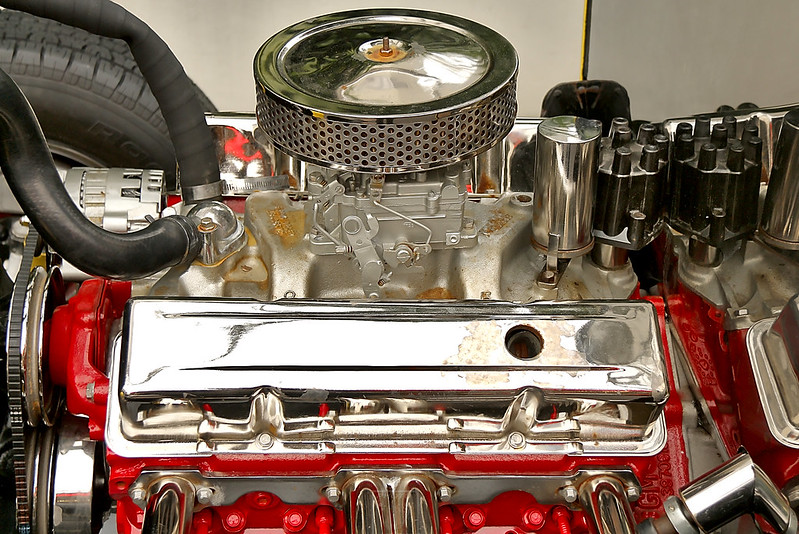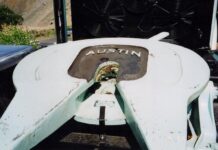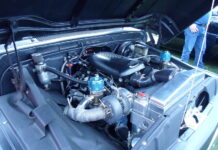
The water pump is a critical component of your truck’s engine, responsible for circulating coolant through the engine block to regulate temperature. Over time, the water pump may wear out, leading to decreased performance and even engine damage. It’s essential to know when to replace the water pump to avoid potential engine failure and costly repairs.
Signs that your truck’s water pump needs to be replaced include leaks, unusual sounds, and overheating. If you notice any of these signs, it’s recommended to have the water pump inspected and replaced if necessary.
Furthermore, water pump lifespan is typically around 100,000 miles, and some may last up to 150,000 miles with proper maintenance. However, it’s always better to replace the water pump before it fails to ensure the longevity of your truck engine.
Symptoms of a failing water pump
The water pump in your truck is critical to keeping your engine’s cooling system functioning properly. Here are some common symptoms of a failing water pump that you should watch out for to determine when to replace it:
| Leaking coolant: | Leaking coolant is a sign that the water pump’s internal seals have failed, indicating that it needs to be replaced. |
| Overheating engine: | A water pump that can’t circulate coolant through the engine will cause the engine to overheat and potentially damage other engine components. |
| Whining noise: | A failing water pump may make a whining noise, indicating bearing wear that could lead to pump failure. |
| Engine coolant discoloration: | If your engine coolant has a rusty color, you could have a failing water pump that is depositing rust into the coolant. |
| Steam from radiator: | Steam billowing from the radiator could be a sign that your water pump is no longer working correctly, and the coolant is not circulating properly. |
If you observe any of these signs, it is recommended to replace the water pump as soon as possible in order to avoid further engine damage.
Reasons for water pump failure
Water pumps play a crucial role in the engine’s cooling system by circulating coolant/antifreeze throughout the engine. There could be many reasons for water pump failure, including:
| 1) Bearing wear or failure caused by lack of lubrication or debris contamination, |
| 2) Seal failure due to age or overheating, |
| 3) Leaking coolant caused by corrosion or erosion of the water pump housing, |
| 4) Excessive vibration caused by worn-out bearings or a failed gasket, |
| 5) Overheating caused by a failing thermostat, low coolant level, or clogged radiator. |
Usually, a water pump lasts up to 100,000 miles, but sometimes it can fail earlier, depending on the driving conditions, maintenance level, and quality of the pump. It’s always best to replace the water pump as soon as you detect any signs of failure, such as coolant leaks, unusual noises, or engine overheating, to avoid costly damage to your engine.
Cost of replacing a water pump
The cost of replacing a water pump on a truck can vary depending on several factors, including the make and model of the vehicle, the cost of the replacement part, and the amount of labor required to install it.
On average, the cost of a replacement water pump can range from $200 to $750. Additional costs may include the cost of coolant, gaskets, and other parts that may need to be replaced during the installation process.
It is important to have your water pump replaced when you notice signs of wear and tear, such as leaks, corroded parts, or unusual noises coming from the engine. Delaying a water pump replacement can cause severe damage to your engine, resulting in much higher repair costs down the line.
If you are not experienced in vehicle repairs, it is best to take your truck to a certified mechanic for a proper diagnosis and repair. Pro Tip: Regular maintenance of your truck’s cooling system, including checking fluid levels and flushing the system, can help prevent premature water pump failure.
DIY vs. Professional Replacement
If you’re wondering whether to replace the water pump on your truck yourself or hire a professional, there are a few things to consider.
DIY replacement may be suitable if you have experience and knowledge of the mechanics of your particular truck model, possess the necessary tools and equipment, and feel comfortable working on the engine. It can also save you money on labor costs.
However, if you’re a novice or lack confidence in your mechanical abilities, or if the job requires specialized tools, it may be best to hire a professional to replace the water pump. This option comes with the added benefits of an experienced technician who can diagnose and fix other issues that may arise during the replacement process.
Keep in mind that procrastination or neglect of the water pump can cause severe engine damage and lead to costly repairs, so it’s essential to replace a faulty water pump as soon as you notice any warning signs, such as engine overheating or coolant leaks.
Thus, it is recommended to consider your skillset and the complexity of the job before deciding on DIY or professional replacement of the water pump on your truck.
Steps for Replacing a Water Pump
A water pump is a crucial component of your truck’s cooling system, responsible for regulating the flow of coolant into the engine. Over time, your water pump may fail, and it’s important to know when it’s time for a replacement.
Here are some signs that your truck’s water pump needs replacing and the steps to follow to replace it:
| Signs that you need to replace the water pump: |
|---|
| – Overheating engine |
| – Coolant leaks |
| – Grinding or whining noise from the water pump area |
Steps in replacing the water pump:
- Drain the coolant from the cooling system.
- Remove any parts blocking access to the water pump, such as the fan, shroud or belt.
- Loosen the water pump pulley bolts and remove the drive belt.
- Remove the water pump pulley, water pump and gasket.
- Clean the mounting surface and install the new water pump and gasket.
- Reinstall the water pump pulley and a good serpentine belt, and tighten the pulley bolts.
- Refill the cooling system with coolant and check for leaks.
Replacing a water pump is a big job, and if you’re not familiar with your truck’s cooling system, it’s best to take your truck to a professional mechanic.
Preventative Maintenance
A water pump is a crucial component in a truck’s cooling system that helps regulate the engine’s temperature. Over time, it may become necessary to replace the water pump to avoid potentially catastrophic damage to your engine.
Here are a few signs that it’s time to replace your truck’s water pump:
| 1. Leaking coolant: | If you see a puddle of coolant under your truck, it’s time to check your water pump for any leaks. |
| 2. Engine overheating: | An overheated engine could be caused by a malfunctioning water pump that’s not effectively moving coolant through the engine block. |
| 3. Grinding or whining noise: | A worn-out water pump bearing can produce an audible whining or grinding noise. |
Regular preventative maintenance, including inspecting and replacing your truck’s water pump at the manufacturer’s recommended intervals, can help prevent costly repairs and ensure your vehicle’s longevity.
Conclusion
In conclusion, it is essential to replace a water pump on a truck when it shows signs of malfunction. Ignoring early warning signs such as coolant leaks, strange noises, and engine overheating can lead to serious engine damage and expensive repairs.
The lifespan of a water pump typically ranges from 60,000 to 100,000 miles, depending on the make and model of the truck.
Regular maintenance checks and routine inspections are recommended to identify potential issues with the water pump and avoid costly repairs.
In case of any doubts, it is advisable to consult a professional mechanic to assess the condition of the water pump and determine if a replacement is necessary.
Remember, timely replacement of your water pump is crucial to keep your truck running smoothly and avoid major repair expenses.


